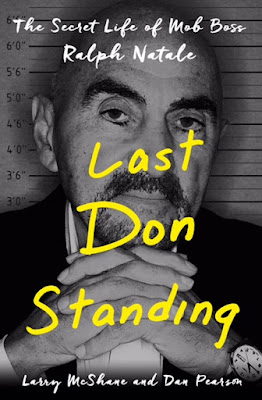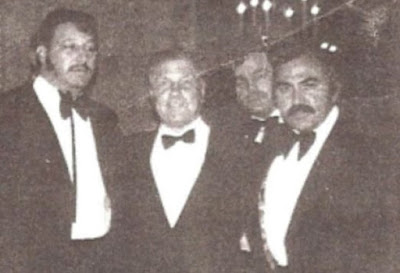I recently had a discussion with a Philadelphia
mob guy I’ve known since we were kids growing up together in South Philly.
We spoke of many things, but what stood out to
me was his strong, bitter feelings about Ralph Natale, the former boss of the Philadelphia
Cosa Nostra organized crime family. Natale died in January of 2022.
The veteran mob guy said that Natale was a phony
and a lousy crime boss, whose greed was the undoing of the local mob.
I interviewed Ralph Natale and reviewed his
book, Last Don Standing: The Secret Life of Mob Boss Ralph Natale, for the Washington Times in 2017.The book was written by Dan Pearson, the
executive producer of the Discovery Channel’s I Married a Mobster,
and Larry McShane, a crime reporter and author of The Chin: The Life
and Crimes of Mafia Boss Vincent Gigante.
The book covers the life of Ralph Natale, the boss of the
Philadelphia-South Jersey Cosa Nostra organized crime family
in the 1990s, and the first mob boss to become a government witness.
As I wrote in the review, I grew up in South Philly, not far
from where Natale was raised a generation earlier. I contacted him and we
talked about his life and the book. I noted that he didn’t appear to be
particularly remorseful or repentant in the book. I asked him if had any
regrets about his past criminal life?
“I have regrets about one thing, I broke my marriage vows,”
Natale replied. “That’s the only thing I regret in my life. When I was 12 years
old, I was a hoodlum. I was a born killer, that’s what I did and why I rose to
the top so easily. But I never touched an innocent man or a woman or a child. I
just clipped the guys who were supposed to get clipped. And they went. It was a
simple thing for me.”
You can read my Crime Beat column Q&A with Ralph Natale below:
Davis: Why
did you write the book?
Natale:
It was very simple. When I “went away,” the second time, I did 13 years. I told
my friends to make sure every month that my wife has enough until I come home.
Oh, yeah, yeah, they said. When I asked her every month, she said no, I said
OK, maybe something happened. Then I said, OK, how about these punks?
Davis:
That made you bitter?
Natale: When
I first came home from the first bit - I did 16 on that because I didn’t want
to be a witness - they were living in their mother’s homes and they were
driving other people’s cars. Forty-five months later when they arrested me for
a parole violation, they were now driving Mercedes, BMW’s and they bought their
own homes. Forty-five months! Before that they didn’t know how to get out of
their own way. This is all a matter of fact. Everybody in South Philly knows
and everybody in the mob knows. And now when I go away and this thing happens,
I said I want to see those punks. I got indicted for helping my son-in-law and
his drug business, I leant him some money, and this and whatever. He got
arrested with everybody else and my name came up. So I got indicted on this.
Now this was the third time around. I was facing life. I would have gladly done
it, gladly, because I did 16 when I really was in trouble. But they didn’t come
up with a dime. And that’s why I wrote every word, and every part of it. You
have to believe it because they never denied it. They couldn’t deny anything.
Davis:
Did you have any difficulty testifying against your former criminal associates
in court?
Natale: I saw them in the courtroom when I think did eleven or
twelve days on the stand. In fact even the marshal said, we never seen nothing
like it, you ripped the lawyers up. We never saw a man answer like you. I was
telling the truth. It’s easy to tell the truth. The FBI agents when they
arrested me in Florida, they said we’ll get you on the big one, I said you guys
are crazy. It all came out later in the trial when I was a witness. That’s the
reasons why I did this. Throughout the mob, every mob leader at that time could
not believe it, but then they said we know why Ralphy did it, because these
bastards kept everything for themselves and didn’t give me a dime.
Davis: Can
you briefly describe what it was like to be the boss of the Philadelphia-South
Jersey Cosa Nostra family?
Natale:
Well, first of all, I always loved the guy who ran it, Angelo Bruno. When I
went to work under “Skinny Razor,” John DiTullio, I saw what it was like to be
admired and respected by “men,” and to tell men what to do and they would do
it. I loved the ways, the world, everything was in place. I like things in order.
I don’t like any disorder. When it gets disordered you see what happens in the
world, in politics, in everything. It was like being dead and then all at once
I became alive when I became a boss. I loved every moment of it. There is
nothing like it in this world. I once saw a movie, a great sports movie, The
Hoosiers. Did you see it?
Davis:
Yes, good film, with Gene Hackman.
Natale: OK.
When the woman in the movie was talking about her brother she said around here
if a guy plays basketball, he’s treated like a God. Hackman said, listen, he
told her, anybody, if he’s treated like a God for 15 seconds, then that’s well
worth anything in the world. That’s true.
Davis: That’s
the way you felt when you were the boss?
Natale: Yeah,
that’s the way I felt. To be a part of La Cosa Nostra, when
things meant something, you had to at least make a kill on your own. In my
time, I committed, I think I pled to eight of them when I had to plea. I love
my peace, I love my family, I love whatever I do, but if it comes time, I’m
still mobster Natale. That’s all I know. The reason I speak so plainly is
because I want you to understand what men like me are like. We don’t look any
different. I don’t act like a mobster, I never did.
Davis:
I’m half-Italian, I grew up and live in South Philly and I’ve covered organized
crime for a good number of years. I know the Cosa Nostra culture.
Natale:
The culture is this, if you can’t do it and then go home to sleep, then you
shouldn’t do anything. I was brought up at 6th and Wharton in
South Philly. I was born and raised in that area. My mother family comes from
there. My father’s family died early in their lives when they came from the
other side. They got caught up in that flu epidemic. I was still see the same
stores, the same houses and the same people. And I love every one of them with
my heart.
Davis:
How were things different from when you were the boss and, say, from when
Angelo Bruno was the boss in the 1960’s and 1970’s?
Natale: Well,
when Ang was the boss, money was around. Gambling, and this and that, but when
I became boss, we had to go out and make our money. There was a lot of punks
around. It was tough. Two weeks after I came home I called one big meeting. I
said I want everybody to go get these guys taking all the action and tell them
to meet us. When we were through with this meeting at a banquet hall we all
became partners with the guys that were there. That’s what I did. We started to
make money.
Davis: Did
you meet any resistance from other ethnic gangs, like the Russians or biker
gangs?
Natale: Everybody
else knew that I was home and they knew what kind of man I was on the street
before and when I was in prison. Once I called them in and had something to
say, they all knew I kept my word. And they had to keep their word. I wasn’t
Superman. You could put two in my head. But so far, I’m OK. I’m here.
Davis: How
different is today’s mob, as I guess you’re watching it from afar, and from
your day and era?
Natale: They
don’t keep the rules. The watch too many movies. They watch The
Godfather, they watch Casino. I was with those people, I
knew those people. It was a joke. And these guys want to walk and talk like
that. It was not like it was when we were young. We had men on the street. The
few men that are left are the men that did time with Scarfo. They all did their
time like men and they all came home like men. I didn’t know them because I was
much older than them and I was away, but I admired men who did their time and
came home. They are the only men who are left in South Philadelphia.
Davis: Scarfo
recently died in prison. What did you think of him and how he ran the crime
family?
Natale: He
destroyed it. Nicky Scarfo was a man who had a hole inside him. He had no soul,
no heart. You know, he didn’t have one true friend? Not one. I knew him very
well. Many years ago when we were working in Atlantic City I wanted to kill
Nicky Scarfo. It came out. I asked Angelo Bruno. No, Ang said, his uncles are
my friends, and he’s this, he’s that. I said he’s going to give us trouble. But
Ang said, with half a smile, don’t do this. It can’t be done. He put all those
guys, all men, in prison.
Davis: There
is some question of who is the South Philly and South Jersey boss today. Do you
know who it is?
Natale: There
is no boss! There is no more mob there. They are not recognized anywhere in the
country because of what they did and who they were. They don’t even know how to
walk on Passyunk Avenue. The men who came home can and I wish them all well.
It’s not like before.
Davis: Can
you describe your homecoming when you became the boss?
Natale: When
I came home the first thing I did was walk from Jefferson Hospital, where I
arranged to have a hernia operation later, to South Philly. I wanted to see
South Philly again. When I went down Ninth Street at the Italian Market, all
the guys working behind the stands came and we hugged and kissed. They already
had the word because the news media had me as the new boss. It was so warming
for me. And then we stopped at the Villa de Roma and we had a little drink – it
was in the afternoon – and then we went home. That’s what South Philly was to
me. I lived my life pretty good in South Philadelphia. Walk up and down every
street and find out how I treated my friends and other people that I barely
knew, and then you’ll know what kind of man I was. Then you’ll understand me.
Davis: How
difficult was it to become a government witness after a lifetime in Cosa
Nostra?
Natale: It
wasn’t difficult for me. I’m not going to cry like other people. I wanted to
get those punks. When my wife and family had nothing and I gave those punks
everything? It was so easy. Done and done.
Davis:
If you look back in crime history, Cosa Nostra took pains to
support the families of guys who went away to prison. This was key, along with
a threat of death, that there is no record of any Cosa Nostra member
becoming a government witnesses prior to Joe Valachi, and not many afterwards
until much later, when greed, along with the RICO statute, changed all of that.
Natale: It
was like that. When I was away at Lewisburg I got subpoenaed to appear before a
Senate Investigation Committee On Organized Crime. This was in 1982 and I had
the first three years of a 23-year sentence. When they took me there they told
me if you give us the right answers you’ll have your sentence reduced and
you’ll be home within three months from today. I said you got the wrong guy.
There were just three guys there. There was Nicky Scarfo, who had just become
the boss, and the old man from Chicago, Anthony "Joe Batters,” Accardo.
and me. I was the only one in prison and I was in jeopardy of getting another
sentence for perjury, for this, for that. I did what I had to do. It was on
C-Span and I still got the clip. I didn’t say a word about anybody. I could
have put in prison half of New York, half of Chicago and all of Philadelphia.
And you know who went to jail? Me. And that’s the truth. That I’m proud of.
Davis: What
do you think of Ron Privite, the man who wore an FBI wire, recorded you and
testified against you?
Natale: Anybody
who testifies against me was what he was. I have no ill feeling about anything
or anybody. I look at him, and say, well, you know, he did what had he had to
do to save his ass. That’s what kind of name he’s got and that’s it. I ain’t
got time for hate. I intend to live to be a hundred, but if I die tomorrow, I
don’t have any hate in my body for anybody that did anything against me.
Davis: Are
you concerned about your personal safety? Is there an open contract on you?
Natale: Who’s
going to come after me (laughs)? I’m still a man. I was always known as a
dangerous, dangerous man. That’s all I can tell you.
Davis: There
is that interesting story of “Harry the Hunchback” Riccobene, an elderly man,
who took a couple of bullets but still managed to take the gun away from the
hit man who was a young guy. Did you know him?
Natale: Let
me tell you a story about Harry Riccobene. You’re the first guy I’m going to
tell it to, a South Philly guy. When I was home and I was the boss, I was down
at 8th and Tasker, at Frankie’s bar and I had to see him about
something. I ran into a couple of my old school chums from Bartlett Junior High
and one of them came over and said can I speak to you? Yeah, what is it? He
said he gets a call every week from a man who praises you and loves you. He
said if I ever ran into you I should arrange for you to come to my home and
talk on the phone to him. What’s his name, I asked? Harry Riccobene. Little
Harry? I love him. You make the arrangements and we’ll get it done. I did go
over the week after. That was a real man. You know what he told me? He was glad
I got it. He said I deserved it more than anybody. I said thanks Harry. He said
he was fine - he had a ton of money. You remember I love you, ever since I was
a boy, I said, and he said he loved me too. He died at 93-years-old, I think.
Davis: He
was a tough old guy.
Natale: Harry
Riccobene was a notorious killer. He used to drive Skinny Razor around and they
were the men that I knew and they watched me grow up. I loved and respected
them with all my heart.
Davis: You
write about Teamster boss Jimmy Hoffa in you book. Are you aware that Martin
Scorsese is making a film about Frank Sheeran, the former Teamster and hit man
who claimed to have murdered Hoffa as well as “Crazy Joe” Gallo in New York?
Natale: Let
me tell you about Frank Sheeran. He’s nothing but a drunk and he imagines
things. He begged for me to see him when I was home and I did. I went over to
South Philly and I met him there. He was half-drunk and that was it. He said he
killed Jimmy Hoffa. I know who killed Hoffa. I have a picture in the book with
me and a few of the guys from Lewisburg and one of the guys in the photos was
one of the three guys who killed Hoffa. His name was Tommy Andretta. His
brother was with him and there was the other guy they killed in New York,
Salvatore Briguglio. This was a hit squad from “Tony Pro” Provenzano, who was
my dear friend. He was a capo. I get a little angry. You know how guys claim to
killed Jimmy Hoffa? I think 15.
Davis:
And he’s buried here, there and everywhere.
Natale:
I just gave you the three guys. It will come out.
Davis:
Why do you believe he was he murdered?
Natale:
Because he wanted to come back and take over the union. I got a whole chapter
in there. He asked me to help him and it explains it in the book. He was killed
because he made the first major mistake in his life. If a man is a gambler, a
drinker, a womanizer, he’s got other things to do when he’s retired, you know.
Hoffa had only thing – the union. He loved it. He was a rich man but he wanted
that union back. I met Hoffa and told him if Ang wants me to help you, fine but
if not, I can’t serve two masters. Sorry. That was the last time I saw Jimmy
Hoffa and then he was dead.
Davis: In
your book you debunk the idea that Cosa Nostra was against
drugs. You write that everybody sold drugs. But why did some bosses like Paul
Castellano in New York prohibit them in such a strong way?
Natale: Listen
to me. Let me break that fable. Every mob in New York, Chicago, Philly, always
has a man who sells drugs. Everybody handles drugs. There was Joe Bonnano, who
in the beginning said no drugs, no drugs, meanwhile he became the biggest rat
in the world. You get the bosses money, and that’s it.
Davis:
After Bonanno was exiled from New York to Arizona he was suspected of running a
major heroin operation from Mexico.
Natale:
Listen to me. There is no crime that cannot be done if you belong to the mob.
Davis:
You spent a good many years in prison and your descriptions of prison life in
the book seem almost nostalgic. Was prison life for you like the scenes from
the movie Goodfellas? Did you live fairly well inside?
Natale: That’s another thing they overdid. It’s all bullshit. You go to
prison and you got time to do. You do it and it’s hard. Some guys can do it and
some guys can’t. I did almost 30 years in prison. So I know what prison is
about.
Davis:
Are there plans to make a film from your book?
Natale: We’re
ready to make one. Dan Pearson will be leaving in a couple of weeks to go to
Hollywood and sit down and talk turkey with some real big people. You’ll hear
about it in two or three weeks. We’re going to make a beautiful movie.
Davis: Are
they going to shoot the film in South Philly? I hope they don’t film it in
Pittsburgh or Scranton like they did the film 10th and
Wolf. I grew up near 10th and Wolf.
Natale: It
is going to be filmed in South Philly and Jersey.
Davis:
Who was the most impressive man you came across?
Natale:
I would have to say that the most impressive man I ever been around was John
DiTullio, Skinny Razor. He was the most feared man in the United States, you
know. He was number one. And I give you the Chicago guy, Anthony Accardo. When
I met him, I thought I was meeting God.
Davis: What
is your life like now?
Natale:
I love my family. I enjoy my wife and all my children. I had five children and
they had ten children and now we have 12 great-grandchildren. Can you image
that? They are all beautiful and smart and entertaining. They are great looking
people.
Davis: Thanks
for talking to me.
Note: You
can read my Washington Times review of Last Don
Standing via the below link:
http://www.washingtontimes.com/news/2017/mar/27/book-review-last-don-standing-the-secret-life-of-m/

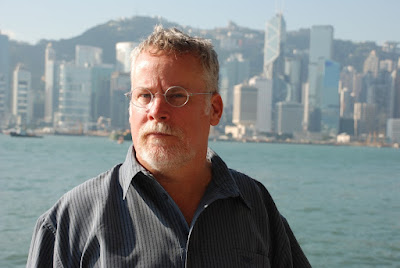


.jpg)
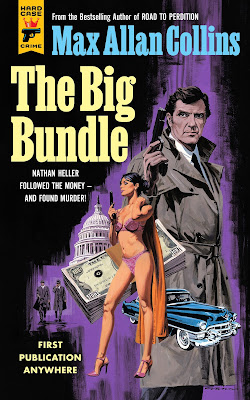


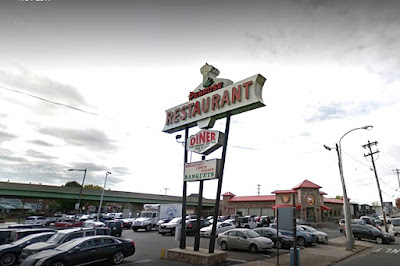



.jpg)

